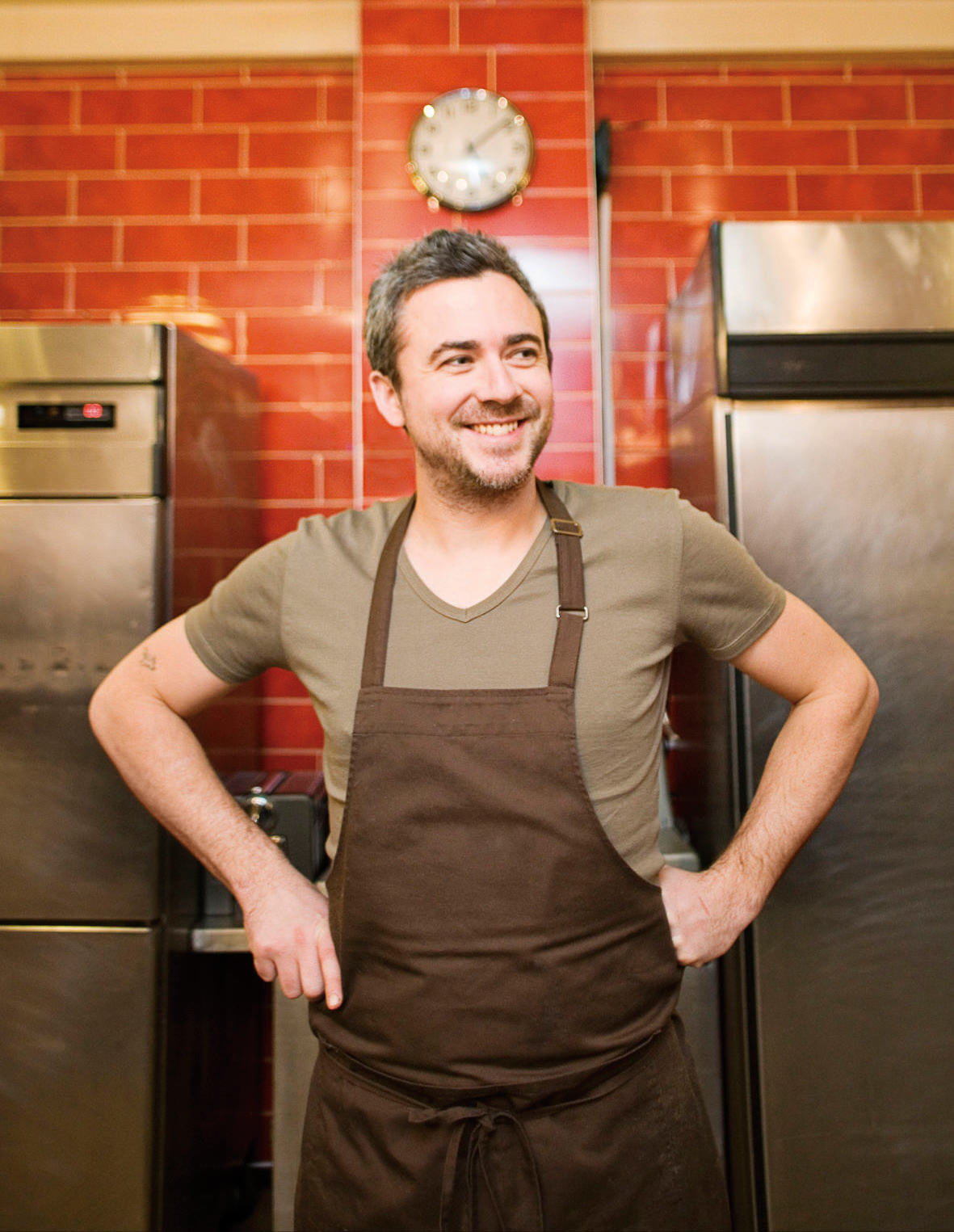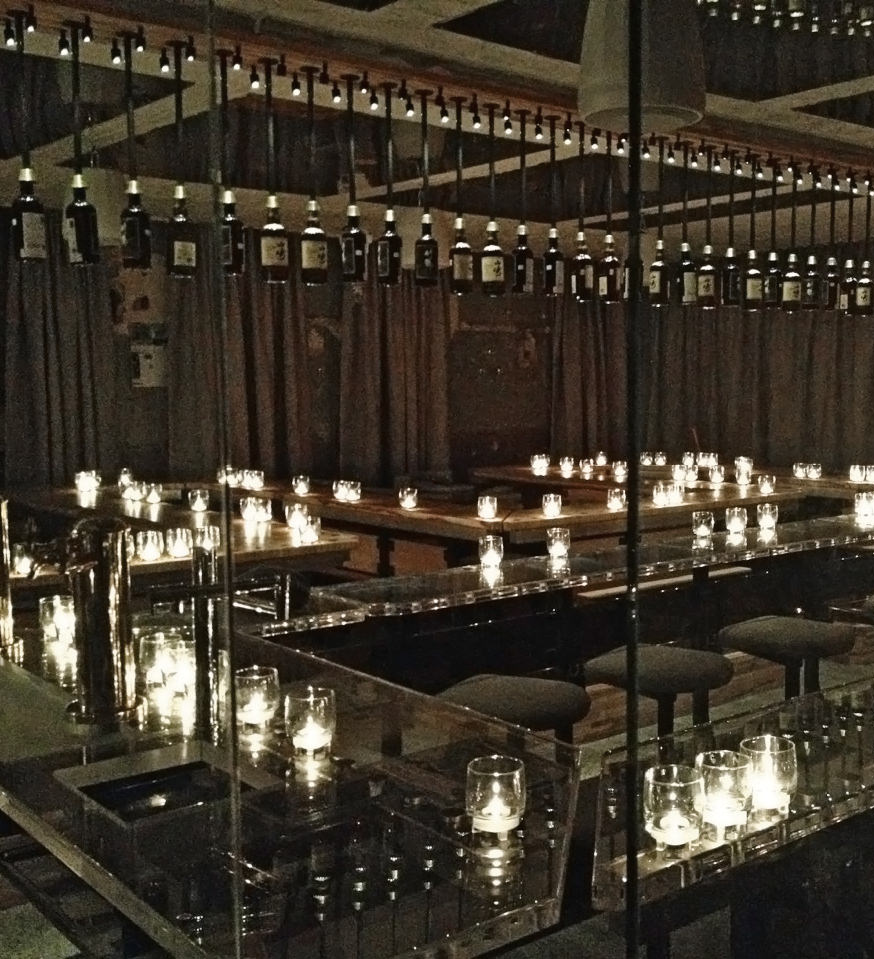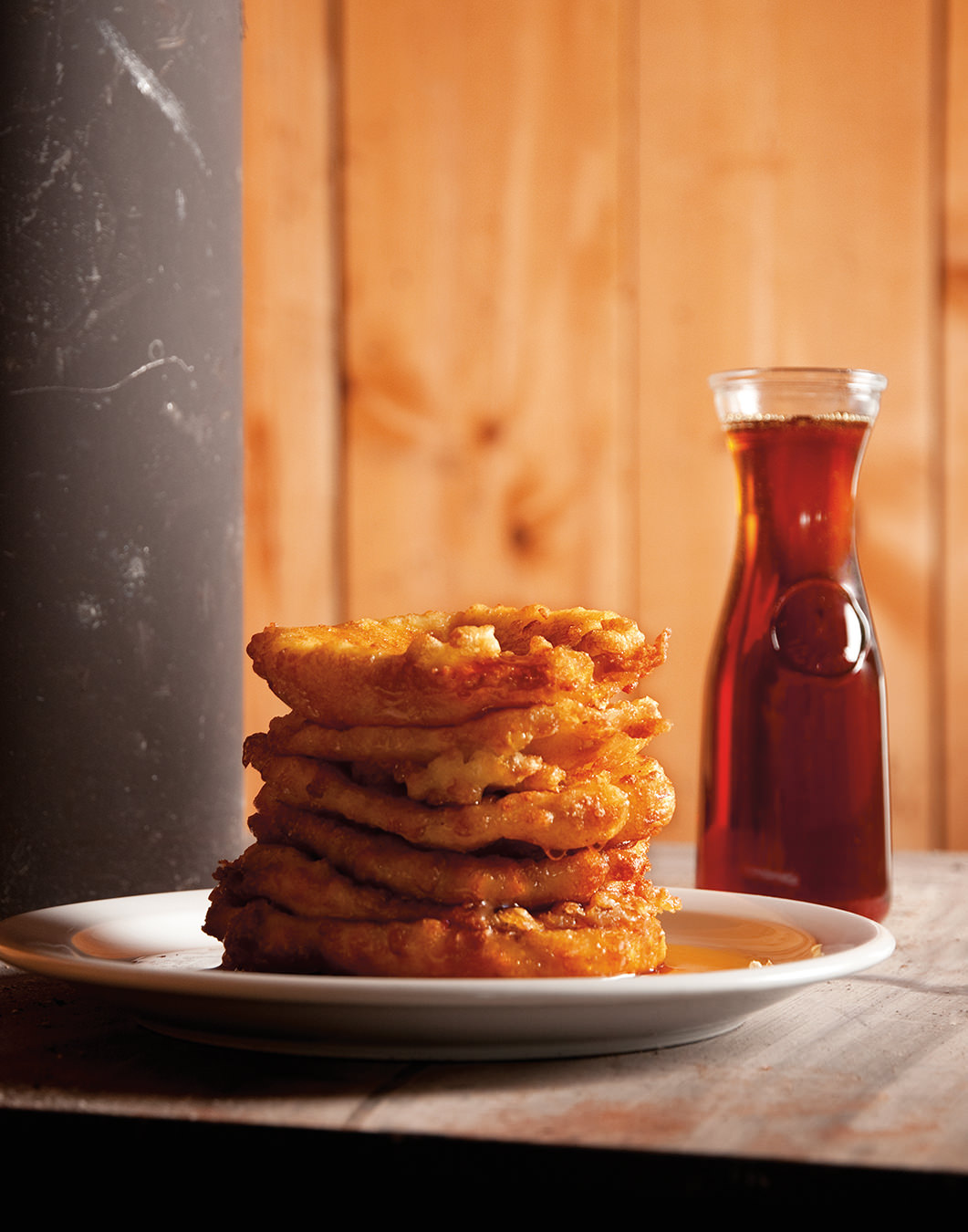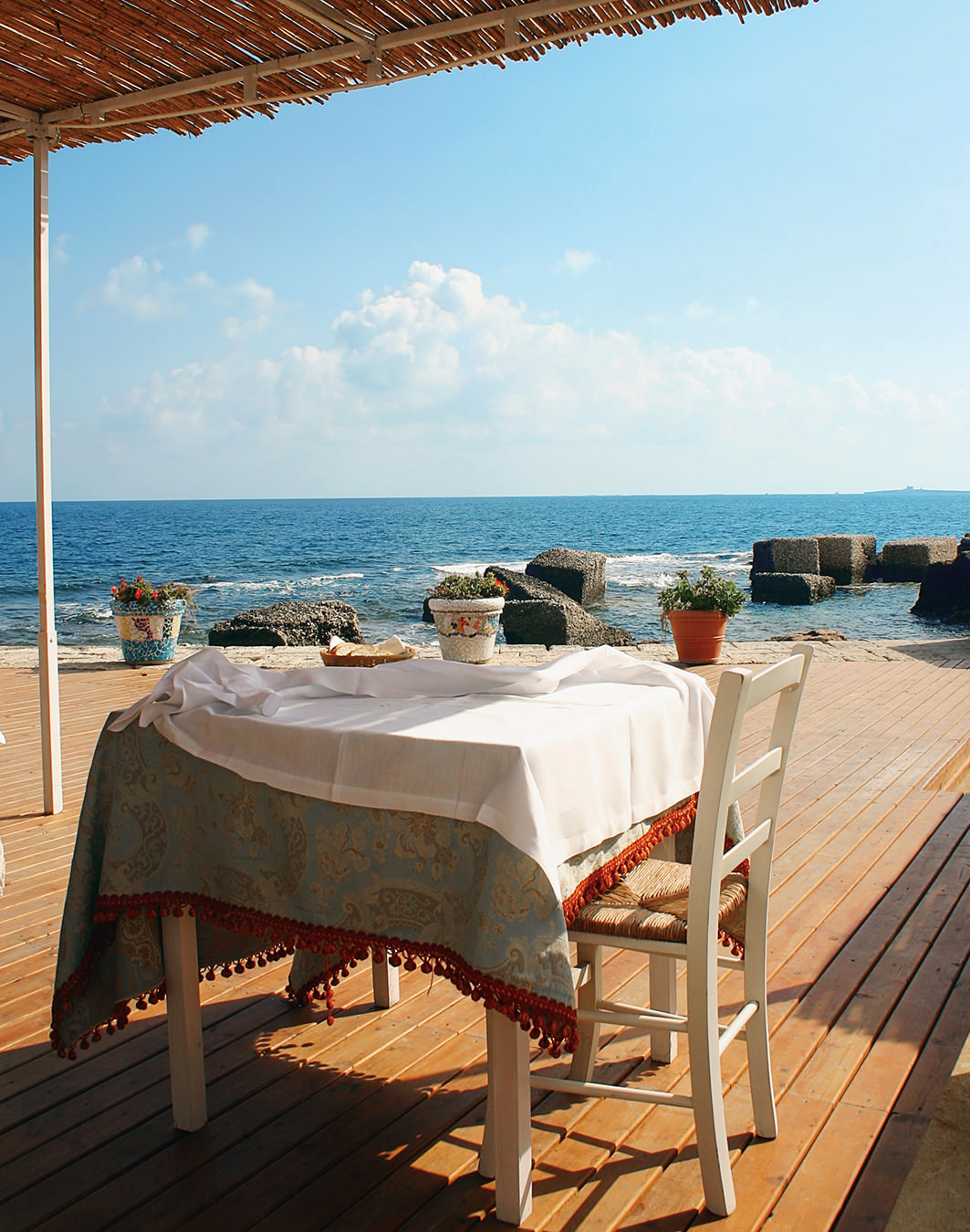Albergaccio Niccolò Machiavelli
Good food, fine wine at the "bad hotel".
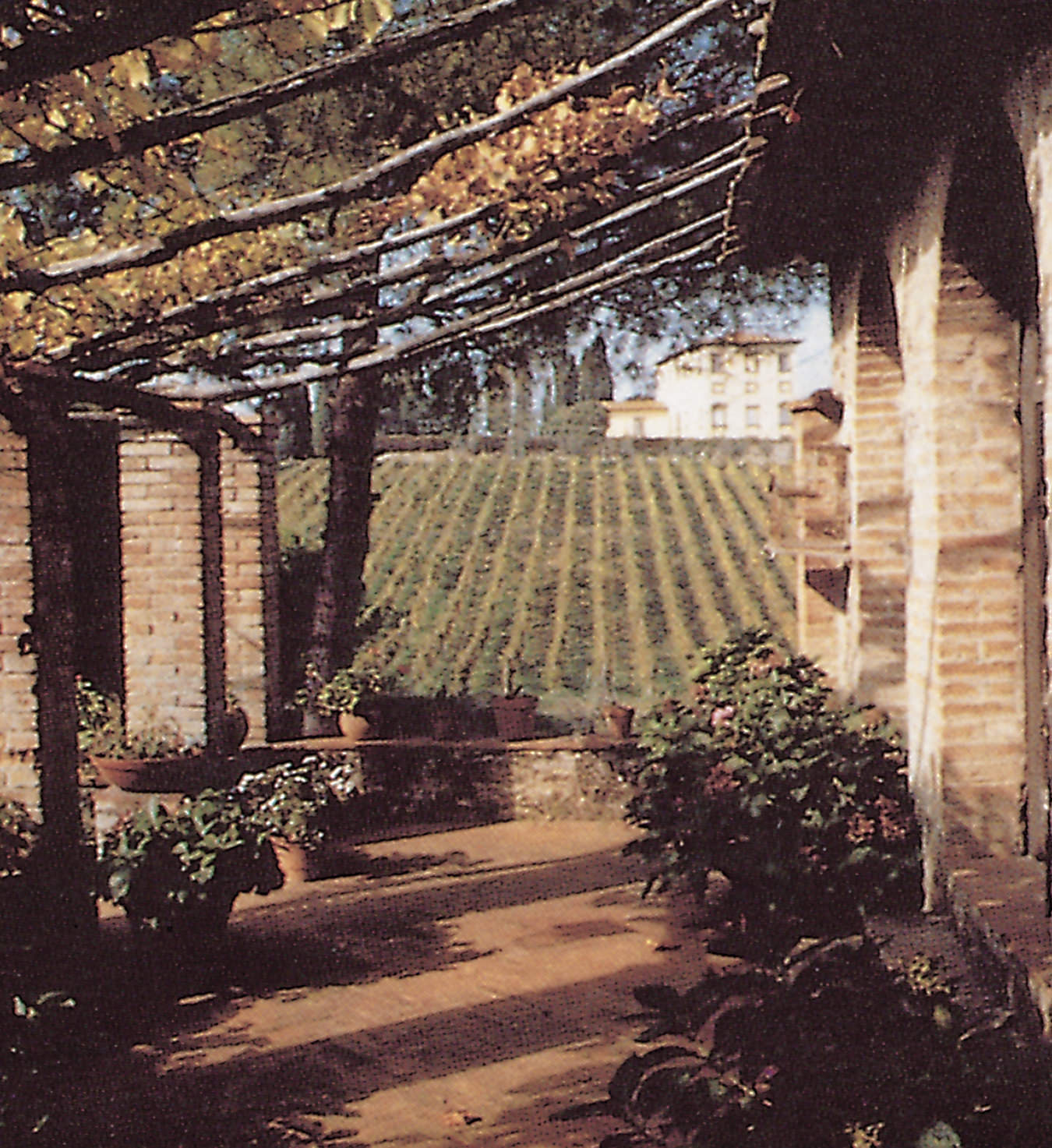
Just stick your head, it won’t take long, into any roomful of politics; someone will saddle someone else with the adjective Machiavellian. “Characterized by cunning, duplicity or bad faith” says Mr. Webster. Nearly five hundred years later, poor Niccolò is still most often found under a cloud of bad press.
The late 15th century Florentine statesman, author, and political philosopher was just telling it like it was (is) and he had a ringside seat from which to tell it. But in the end, all he really wanted was a decent dinner, a carafe of Chianti, and a chance to escape through the tunnel, under the street from the restaurant to his house, if the bad guys appeared on the horizon.
That is, in the tiny town of San Andrea in Percussina, off the Siena-Firenze superstrada, within telescope-viewing distance of Florence, home to the Albergaccio Niccolò Machiavelli, Tavernetta e Fattoria. Fattoria means farm, often associated with the growing and making of wine; tavernetta is a smaller, cozier taverna. Read: eat, drink and be merry.
Here he hid out after falling from favour with the Florentine Medici, writing ruthlessly, eating well, and drinking even better. While the only person I saw here writing recently was a chap from Niagara Falls making notes in his wine traveller, the eating and drinking continue apace. Better, I should think, than in Machiavelli’s time.
Did he have a rave review from the Gambero Rosso to guide him to the fattoria’s amazing ‘94 Chianti Classico or similar Sangiovese sensation? The chef will bubble up some ribollita, followed by the quintessential carnivore’s plate—bistecca alla Fiorentina—grilled on an open fire, slathered with extra virgin olive oil, arugula, and other fresh herbs, sauced with a splash of vinegar, augmented with a few slivers of parmesan. He may, though, have ruminated on his failed fortunes, dipping a crunchy cantuccini into a consoling glass of vin santo.
There’s always prosecco in the courtyard first, then a tour of the house: touch the desk, look out the window towards the Florentine hills, breathe in a little literary antiquity and then—down the stairs, into the tunnel, under the street and up into the Albergaccio.
A document in the archives, dated six years after Columbus sailed the ocean blue, confirms that one Bernardo di Boninsegna inherited “an hotel with a large outdoor patio,” a wine cellar on the other side of the patio and several other properties in the vicinity “including fruit orch-ards, forests, olive groves and vineyards.”
Niccolò Machiavelli lived here from 1513 on, reflecting on his past glories as the last Republican chancellor, in virtual exile from Florentine life and politics as a result of the Medici family’s return to the city. Here he wrote one of his most famous works, Il Principe (The Prince). Machiavelli dedicated The Prince to a younger member of the Medicis, attempting to show how useful the author might be as a political advisor to an inexperienced politician. While Machiavelli praises ruthlessness, he condemns senseless cruelty, considers all politics cynically, and trumpets a call to unity.
In the end, all Machiavelli wanted was a decent dinner, a carafe of Chianti, and a chance to escape through the tunnel under the restaurant if the bad guys appeared on the horizon.
The bad press came as a result not solely of The Prince, but a romantic comedy-drama, La Mandragola: young lovers, old fools, fiendish leeches, and doddering confessors. The cynical story reinforced the author’s burgeoning reputation as a teacher of treachery, intrigue, and immorality. When he criticized the Christianity of his day he drew the ire of the Church. Not long after, the adjective based on his name came to mean cynical politics.
Eventually, modern opinion turned the trend; today he is regarded as a pioneer in political science and there is ongoing appreciation of his style and literary genius.
Not only did he write, but he “turned his poetic nature to winemaking,” according to the same archival document, and while history gives much more credence to his writings, the legacy he left in terms of wine growing and production pays off handsomely with each new vintage.
L’Albergaccio is restored to its original state, the rooms carefully furnished with items from the Villa Museo. The whole effect is a warm feeling of rustic life in medieval Tuscany. The surrounding vineyards (about 23 hectares) produce exquisite Chianti Classico and some exclusive white wines; another dozen hectares of prime olive groves result in outstanding extra virgin olive oil, most of which goes directly into the renowned kitchens of l’Albergaccio.
After passing from Machiavelli to the Conti Serristori, the property became part of the holdings of the large Gruppo Italiano Vini, whose Melini wing (named after a Tuscan Chianti pioneer) markets its DOCG Chianti Classico under the Machiavelli label. And the wines? You’ll rarely see them far beyond Tuscany; you will see many of them on the lista dei vini at l’Albergaccio.
Albergaccio Machiavelli is one of those off-the-beaten track places you’ll recall with pleasure for years. Remember it next time you find yourself in Florence with a day free. Eat hearty, savour history, sip slowly. As Niccolò Machiavelli said in his letter to Ambassador Francesco Vettori, 10 December, 1513: “Divine mercies never come too late.”

